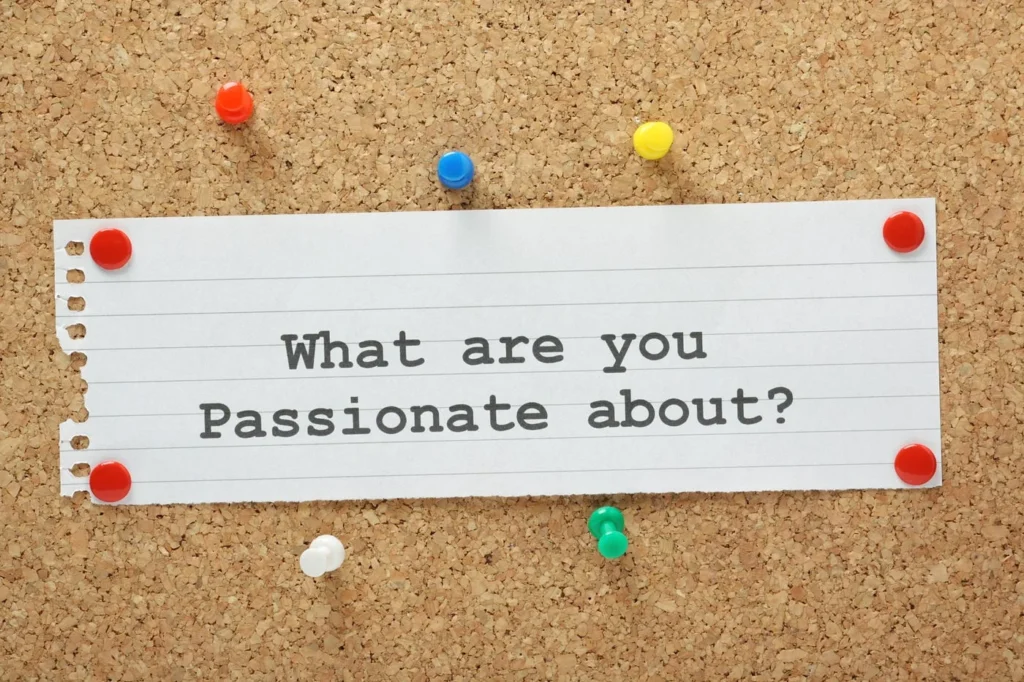Deepen Your Friendships: 20 Thought-Provoking Questions to Ask
Friendships are one of life’s greatest joys and richest sources of support. True friends accept us for who we are, celebrate our triumphs, and carry us through hard times. However, even our closest friends may have depths we’ve yet to explore. Asking deep questions is a powerful way to peel back the layers, expose our authentic selves, and forge an unbreakable bond.
What exactly are deep questions, and why should you ask them? Deep questions are those that move past superficial small talk and tap into our core values, experiences, hopes, and struggles. They require vulnerability, openness, and self-reflection. While uncomfortable at first, being willing to share and listen at this level cultivates intimacy, understanding, and trust.
Here are some of the profound benefits of engaging friends with deep questions:
Builds Closeness and Understanding
On the surface, we may know someone’s job, hobbies, and relationship status. But deep questions reveal their inner universe – dreams, perspectives, what ignites their soul. This deeper knowledge allows you to relate to and appreciate them in a new way.
Allows You to See Different Viewpoints
We all view the world through a unique lens shaped by our backgrounds and experiences. Asking deep questions exposes you to fresh angles you may have never considered before. This can challenge your beliefs while expanding your horizons.
Creates Opportunities for Self-Discovery
The process of exploring deep questions doesn’t just reveal your friends’ layers – it illuminates your own. You’ll gain new insights about yourself as you formulate and express your deepest thoughts and feelings.
Strengthens Emotional Intimacy
Being vulnerable and exposing your authentic self inevitably brings friends closer. When you share and listen to each other’s core experiences, struggles, and dreams without judgment, an amazing foundation of trust and intimacy is built.
Leads to Deep Bonding Moments
Some of the most profound bonding experiences happen during deep, unguarded conversations late at night or on long car rides. Asking deep questions creates fertile ground for these cherished, memorable moments to blossom.
Now that we understand the “why” behind deep questions, let’s explore 20 examples to help you kick-start more meaningful conversations:
1. What are your biggest goals and dreams in life?
This goes beyond someone’s career ambitions to uncover the ideals and experiences that truly inspire them. Their answer may reveal a burning desire to write a novel, open an animal sanctuary, or sail around the world. Follow up by asking what’s holding them back and how you can support their journey.
2. If you could change one thing about yourself, what would it be?
We all have insecurities or qualities we wish we could alter. This question allows friends to be radically honest about their perceived flaws or sources of frustration about themselves. It opens the door to deeper discussions about self-acceptance, perseverance, and how superficial “flaws” don’t define someone’s worth.
3. What experiences have shaped who you are today?
Our identities are profoundly influenced by defining moments or periods in our lives – both positive and negative. This prompts friends to reflect on pivotal experiences like a difficult childhood, a trip that altered their worldview, overcoming an immense challenge, and more. Their answer provides a window into their core values and beliefs.
4. What are you most passionate about? Why?
Passion is a core driving force that energizes and fulfills us. This query allows friends to open up about the hobbies, subjects, activism, or creative pursuits that set their souls on fire. Understanding their zeal can reveal new layers about their hopes, talents, and purpose.
5. How do you define success?
Our cultures and upbringings usually impose narrow definitions of success based on money, power, status, or achievements. However, individuals may measure success through deeper concepts like finding purpose, making a difference, or cultivating peace and balance. Exploring different perspectives on “making it” can be incredibly insightful.
6. What is your greatest fear?
Fear is a universal human experience, but its roots are often misunderstood. This question allows friends to confess deep anxieties like abandonment, failure, mediocrity, death, or not achieving their full potential. Seeing their vulnerability can strengthen your empathy while uncovering opportunities to reassure and support them.
7. If you could live anywhere, where would it be and why?
This transports the conversation beyond someone’s logistical dream location to their idealized lifestyle and values. Their answer could reveal nomadic desires, affinities for vibrant cultures, dreams of simplicity, or an appreciation for nature and adventure. The “why” illuminates what’s most important to them.
8. What is a life lesson you had to learn the hard way?
We all have poignant examples of lessons we stubbornly resisted until suffering painful consequences. This prompts friends to discuss insightful mistakes, failures, or periods of struggle that built resilience and wisdom. It shows we all experience difficulty, and growth emerges through perseverance.
9. What motivates you to work hard?
Ambition and drive stem from diverse sources like financial security, leaving a legacy, overcoming challenges, competition, or finding purpose. Exploring someone’s intrinsic and extrinsic motivations can expose their values, life philosophies, and what they hope to ultimately achieve through diligent effort.
10. What are your core values?
Our ethics, priorities, and principles profoundly shape our identities and decision-making. This prompts friends to examine and articulate the ideals and beliefs closest to their heart, like integrity, kindness, justice, or lifelong learning. Follow up by asking how they strive to uphold those cherished values daily.
11. How do you want to be remembered?
Death can be an uncomfortable topic, but this question encourages friends to ponder their lasting impact and legacy. Did they hope to be a constant source of laughter? An inspirational community leader? A voice for positive change? Getting this perspective exposes what truly matters most to them.
12. If you could have dinner with anyone dead or alive, who would it be?
This creative query surfaces the historical figures, influencers, or personal heroes your friend most admires. It promotes insightful discussions about role models, mentors, and belief systems that have profoundly shaped your friend’s aspirations and moral compasses.
13. What are your thoughts on [controversial topic]?
While controversial subjects should be broached delicately, exploring different stances in a respectful discussion can be very enlightening. This allows you both to explain your reasoned perspectives on sensitive issues like politics, social justice, ethics in technology, and more. Be open-minded, and resist arguing to truly understand each other’s angles.
14. How do you find meaning in life?
For some, life’s meaning derives from spirituality, while others find purpose in achievements, relationships, or leaving a positive legacy. This highly personal question lets friends openly discuss their existential philosophies and core values that guide them through life’s highs and lows.
15. What are you struggling with right now?
We often conceal our battles and put on a brave face. However, this prompts friends to discuss painful insecurities, obstacles, or personal demons they’re grappling with, like grief, mental health issues, relationship woes, or crises of self-confidence. Check your judgment at the door and simply listen with compassion.
16. What is your biggest regret?
Exploring regrets, while uncomfortable, provides a clearer picture of someone’s core values and missed opportunities that matter deeply to them. This could expose remorse over personal or professional missteps, putting career over family, neglecting self-care, or harboring grudges too long. Ultimately, it shapes their desire to live more purposefully moving forward.
17. Who has had the biggest impact on your life?
The people who alter us most profoundly could be teachers, relatives, partners, mentors, authors, or even strangers met by chance. Hearing about these influencers illuminates experiences and philosophies that most inspire your friend. It may move you to become a similarly positive force.
18. What was your biggest failure, and how did you overcome it?
Failure and resilience are formative parts of the human experience. This gives friends a supportive space to discuss devastating losses, shortcomings, and mistakes that once crushed them. More importantly, it celebrates their perseverance in the face of obstacles and the lessons learned by rising again.
19. How do you relieve stress and find balance?
In our demanding world, finding pockets of tranquility, joy, and equilibrium is essential. Learning friends’ unique methods for unwinding and recharging their spirits – whether it’s yoga, nature, hobbies, or downtime with loved ones – provides healthy lifestyle ideas while underscoring their need
20. What brings you the most joy?
This uplifting question allows friends to reflect on the pure sources of happiness, contentment, and fulfillment in their lives. It could be anything from quality time with family, creative outlets, spiritual practices, making others smile, or savoring life’s simple pleasures. Their answer celebrates what fills their souls with light.
While these deep questions are thought-provoking conversation starters, skillfully navigating the discussions is an art. Here are some tips:
Set the Right Tone and Environment
Deep questions require vulnerability and openness. Choose a private, relaxed setting free of distractions or interruptions. A cozy living room, quiet café, or scenic outdoor spot can create the right atmosphere. Approach the dialogue from a humble place of genuine interest in your friend’s perspective.
Ask Follow-Up Questions
Don’t just rapidly fire off one question after another. When friends share something deeply personal, ask compassionate follow-up questions to continue the conversation thread and show you’re invested in truly understanding them. Reflect back what you’re hearing to ensure you’ve grasped their point.
Don’t Judge or Criticize
Check your assumptions, preconceived notions, and personal beliefs at the door. Being judgmental or argumentative will quickly shut down someone’s willingness to open up. Approach with empathy, an open mind, and the intention to relate – not debate.
Share Your Own Vulnerability
Deep questions work best as a two-way conversation, not an interrogation. When friends expose sensitive parts of themselves, meet them there by sharing your own insecurities, struggles, and hard-won wisdoms. Leading with your own openness and honesty models the vulnerability you seek.
Be an Active Listener
Too often, we listen to respond instead of truly absorbing what someone is saying. When friends reveal their inner experiences, be present and engaged. Make eye contact, don’t interrupt, and avoid getting distracted by formulating your next response. Let the silence breathe after they’ve finished to allow space for further reflection.
Deepening friendships through profound questions is an invaluable investment. While it requires courage to have these unguarded conversations, the payout is a stronger foundation of intimacy, understanding, and fulfillment in your closest relationships.
People Also Ask:
How do I start a deep conversation?
Set the right tone, ask open-ended questions, be an active listener, and follow up to continue the discussion thread. Starting with lower-risk personal questions can build comfort before easing into deeper subjects.
What are good deep questions to ask yourself?
Thought-provoking self-reflection questions include: What matters most to me? How do I want to be remembered? When do I feel most alive? What am I grateful for? What’s my life purpose?
What are some personal deep questions?
Examples include: What’s your biggest regret? What are you most insecure about? What’s your greatest fear? What was your most transform ative life experience? What’s your personal philosophy on love and relationships?
How do you ask deep questions without being rude?
Approach with sensitivity, empathy, and no ulterior motives. Make it a mutual exchange by sharing your own vulnerability. Avoid prying into areas where your friend seems uncomfortable opening up.
What makes a question deep?
Deep questions move past surface-level subjects to explore someone’s core values, belief systems, defining experiences, hopes, fears, and crucibles that have shaped their identity and worldview.
In our modern world of quick connections, truly deep friendships can be rare. By courageously engaging in candid dialogues about life’s bigger questions and being receptive to different perspectives, we lay the foundation for profoundly understanding the friends we hold dearest. The conversations may not always be easy, but taking the emotional risk nurtures unbreakable bonds.








